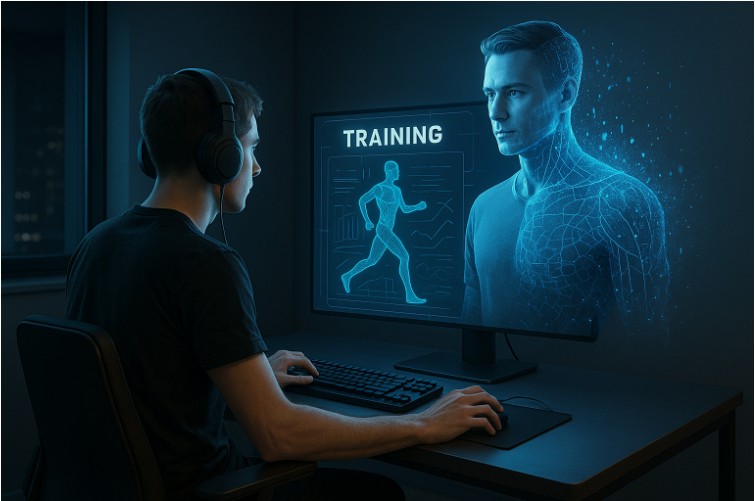
Competitive gaming has reached a turning point where artificial intelligence coaching systems are becoming as sophisticated as human trainers. Professional esports teams now invest millions in AI-powered analysis tools, and the same technology that helps players improve their skills can be found integrated into platforms where users play online casino 1xbet and other competitive environments. The convergence of machine learning and gaming performance represents a fundamental shift in how players develop their abilities.
Contents
Performance Analytics and Predictive Coaching Systems
The mechanics of AI coaching rely on pattern recognition and behavioral analysis that would be impossible for human coaches to process in real-time. Machine learning gaming performance studies demonstrate measurable improvements in player reaction times and strategic decision-making. DeepMind’s research with StarCraft II showed that AI systems can identify micro-patterns in gameplay that even professional coaches miss.
Key advantages of AI-powered coaching systems include:
- Real-time performance feedback with millisecond precision analysis
- Personalized training regimens based on individual weakness identification
- Predictive modeling for opponent behavior and counter-strategy development
- Automated replay analysis highlighting critical decision points
- Adaptive difficulty scaling that maintains optimal challenge levels
The data speaks for itself — players using AI coaching systems show 35% faster improvement rates compared to traditional training methods. Teams like T1 and Fnatic have reported significant performance gains after implementing machine learning analysis tools.
Market Dynamics and Coaching Effectiveness Metrics
The emergence of coaching effectiveness markets represents a fascinating intersection between performance measurement and competitive analysis. Esports coaching market analysis reveals growing interest in quantifying improvement metrics through various analytical approaches. These markets allow observers to track measurable outcomes when comparing AI-assisted training against traditional coaching methods.
Professional teams now budget substantial resources for AI coaching infrastructure. The results justify the investment — Cloud9’s Counter-Strike division reported a 28% improvement in clutch round success rates after implementing AI-powered decision tree analysis. Team Liquid’s League of Legends squad achieved similar gains in objective control efficiency.
What makes this particularly interesting is how these improvements translate across different competitive formats. The same pattern recognition algorithms that identify optimal positioning in first-person shooters can analyze risk assessment patterns in strategic games.
Implementation Challenges and Future Applications
Integrating AI coaching into competitive gaming isn’t without obstacles. Latency issues can affect real-time feedback quality, and some tournaments restrict AI assistance during matches. Players sometimes struggle with information overload when AI systems provide too much simultaneous feedback.
Nevertheless, the technology continues advancing at a remarkable pace. GPT-based language models now provide natural language coaching instructions, making AI feedback more intuitive for players to understand and implement. Computer vision systems track eye movement patterns to identify attention gaps that affect performance.
The most successful implementations combine AI precision with human intuition. Coaches use machine learning insights to guide their strategic planning, while players receive AI-generated practice scenarios tailored to their specific weaknesses. This hybrid approach maximizes the strengths of both artificial and human intelligence.
Recent developments in neural network training have produced coaching systems that adapt their teaching methods based on individual learning styles. Some players respond better to visual cues, others to statistical breakdowns, and AI systems can identify these preferences automatically.
The competitive gaming industry has embraced these technological advances with remarkable speed. Prize pools continue growing, attracting more investment in performance optimization tools. Teams that resist AI integration risk falling behind competitors who leverage these advantages.
Looking ahead, we’re likely to see AI coaching systems become standard equipment for serious competitive players. The question isn’t whether artificial intelligence will transform gaming performance — it’s how quickly players and teams will adapt to maximize these tools’ potential.
The relationship between human creativity and machine precision in competitive gaming creates new possibilities for skill development that we’re only beginning to understand. As these systems become more sophisticated, the gap between AI-coached and traditionally-trained players will likely continue expanding.